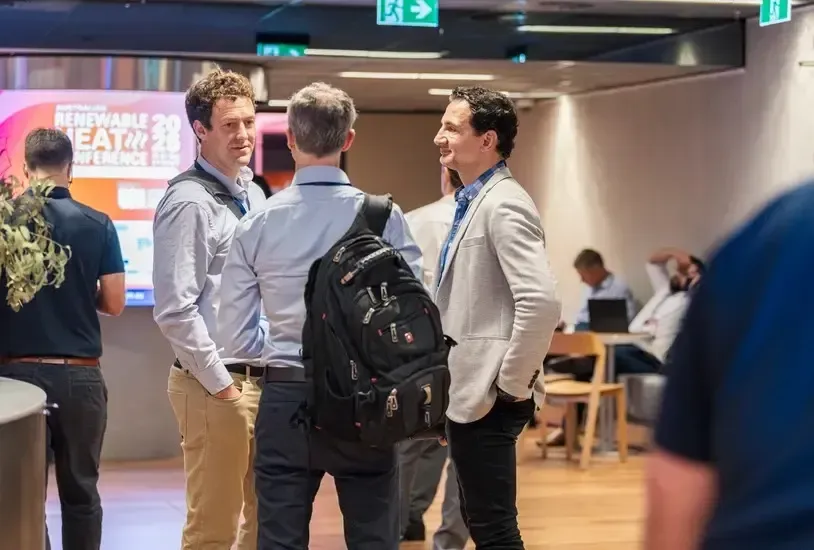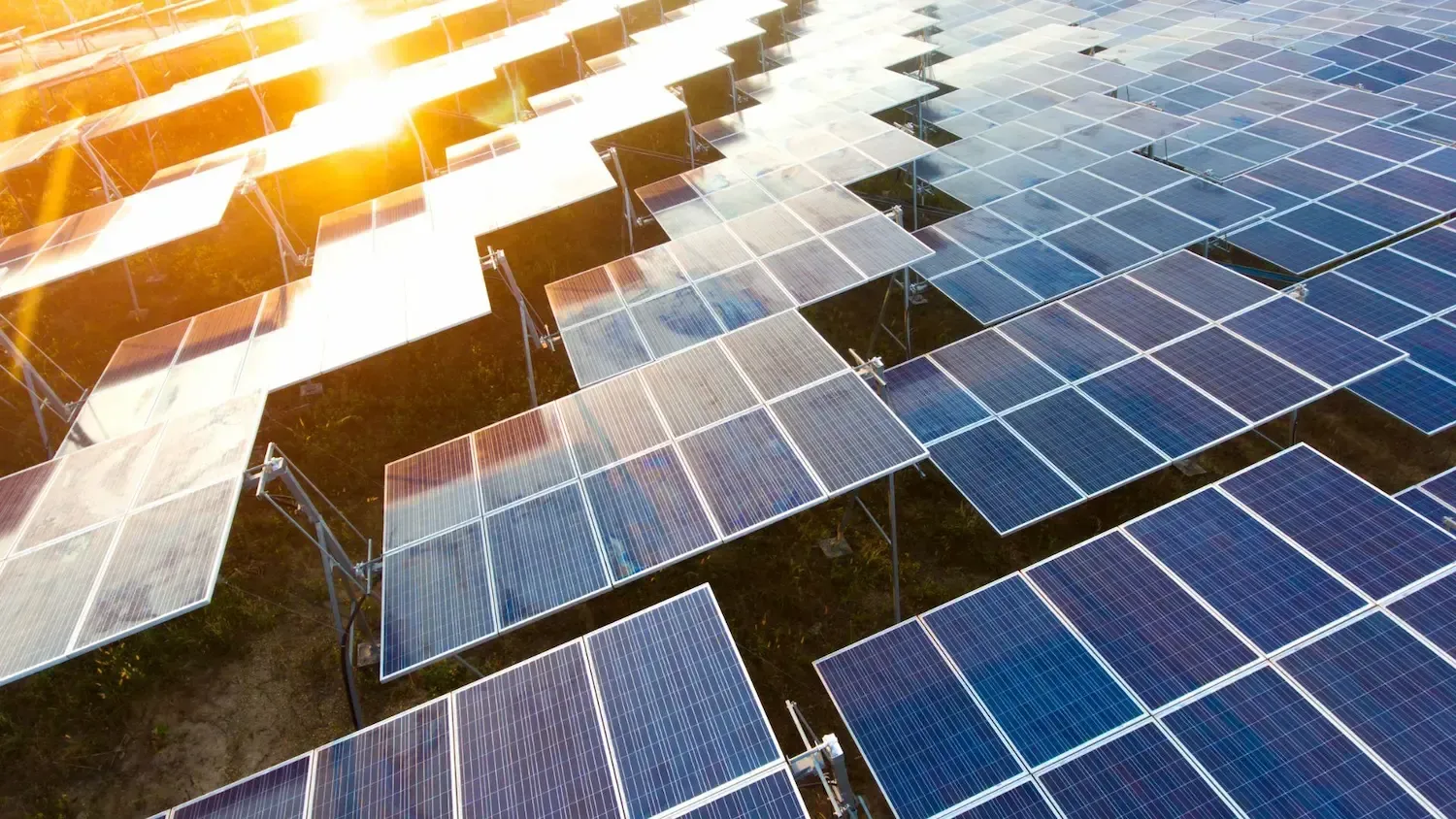Nauru Energy Efficiency on Demand – a Mission to Decarbonise a Nation
DETA - Energy Efficiency Pathway for Nauru
Nauru relies on diesel imports to generate the majority of the country's electricity. Given the escalating impacts of climate change on the Pacific Islands and the soaring cost of fossil fuels, New Zealand’s Ministry of Foreign Affairs and Trade (MFAT) allocated funding to investigate solutions to increase Nauru’s energy resilience to these challenges. The main objectives of MFAT’s funding were to support a stable electricity supply for the island, decrease dependency on diesel imports, and to reduce overall electricity consumption on the island through the introduction of energy-efficient measures.
In 2019, MFAT commissioned a team of energy consultants, led by DETA, on a mission to Nauru to develop a list of Energy Management Opportunities (EMOs). DETA visited Nauru twice to grow the list of opportunities and foster relationships with stakeholders in Nauru, particularly within the government and commercial sectors. Once complete, the list was reviewed by MFAT and a combination of projects identified as aligning with their program aims was created. These were selected based on their potential to deliver significant energy savings relative to the required investment.
MFAT selected 11 projects which DETA was contracted to offer essential technical guidance and program management services on. The projects were delivered on-island by the Nauru Energy Efficiency on the Demand Side (NEEDS) Team, who DETA worked closely alongside. The NEEDS Team operates as part of the Department of Climate Change and National Resilience (DCCNR) within the Nauruan Government’s Energy Division Team. The primary aim of the NEEDS project was to connect the people of Nauru to the benefits of energy saving in an accessible way.
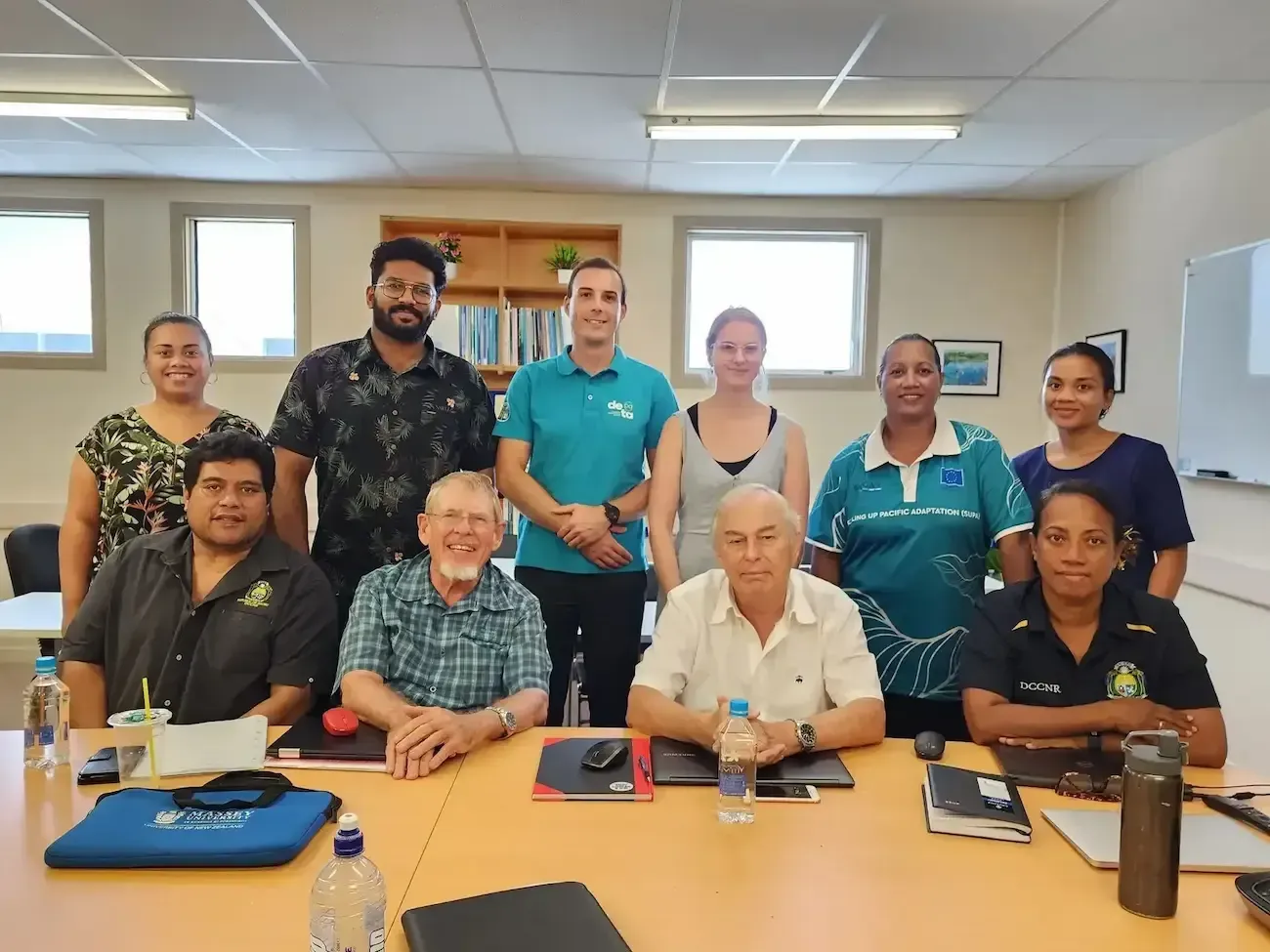
Here is a summary of the projects underway that DETA has assisted or will continue to assist the NEEDS Team with;
The first project was to establish a cohort of three Nauru based energy efficiency team members. Each with their own area of focus who could deliver the projects locally and be the conduit for DETA’s support. Once the individuals were identified, DETA worked to develop the skills and knowledge base of the team, with a focus on all things' energy efficiency. DETA maintained close communications to ensure MFAT’s goals were being achieved by hosting weekly meetings to review the progress of the projects.
An important project, that was crucial to complete early, was to create a brand identity for the NEEDS Team. A strong logo was required to bring NEEDS to life and create a presence and recognition that the locals could relate to. This was to be used for all marketing engagements – Facebook, website, and social media. DETA managed an external design company through this project resulting in a brand that resonated with the target audience, fostering a strong and positive identity for the NEEDS Team and its goals for Nauru’s decarbonisation.
A residential outreach activity program was developed to promote energy efficiency and engage the community directly. DETA developed NEEDS branded promotional materials for these outreach events that the NEEDS Team then delivered to the public. DETA supported the training of the NEEDS Team, and the result was effective community roadshows that educated everyone on energy efficiency. This outreach program targeted all 14 districts on the island. DETA also delivered training for key government officials to help embed energy efficiency knowledge.
Currently there are few formal restrictions on importing appliances, which means poorer energy standard, and low-cost appliances are available. Most nations have moved toward Minimum Energy Performance Standards (MEPS) that utilize the energy-star rating systems to indicate the efficiency of the item. DETA was requested to support the development of the legislative and policy related items to restrict inefficient appliances. This has required coordination between internal government ministers, such as those for the customs, legal and energy departments.
A project to introduce an energy efficiency (EE) fund, to promote the use of more efficient appliances, was a direct way to encourage consumers to have access to otherwise more expensive, but cheaper to run, white goods. DETA supported the development of a rebate mechanism that would enable the consumer to access the discount for appliances with higher EE star-ratings, at the point of purchase. An overarching framework for the EE fund was developed, alongside supporting documentation tracking prices and funding. The fund is active in Nauru and is already encouraging sales of more efficient appliances, as people begin to understand the art they can play in energy efficiency.
DETA, as leading energy efficiency consultants, has played a pivotal role in developing energy efficiency training for Nauru, including programs specifically designed for roles within Nauru’s government. DETA’s training process has enhanced government officials' knowledge of how energy efficiency applies in the context of Nauru and encouraged thought leadership toward efficient outcomes.
Starting energy efficiency education early was identified as an important project. A campaign was developed to promote energy efficiency to Year 6 students, aiming to show in an engaging way how, and at what cost, energy was being used in their own home. Additionally, the team created essential supporting documents such as PowerPoints and handouts to enhance the educational materials and ensure effective communication.
The importance of implementing high-efficiency, low-power LED lighting in buildings was also promoted. DETA focused on securing LED lighting funding for government and commercial buildings where opportunities were identified to replace outdated lighting systems with energy-efficient LED alternatives. The initial focus was on the local hospital, with plans to extend these upgrades to other critical commercial and government buildings contributing significantly to Nauru's overall energy consumption. By targeting key infrastructure, DETA aimed to make a substantial impact on energy efficiency across strategic sectors.
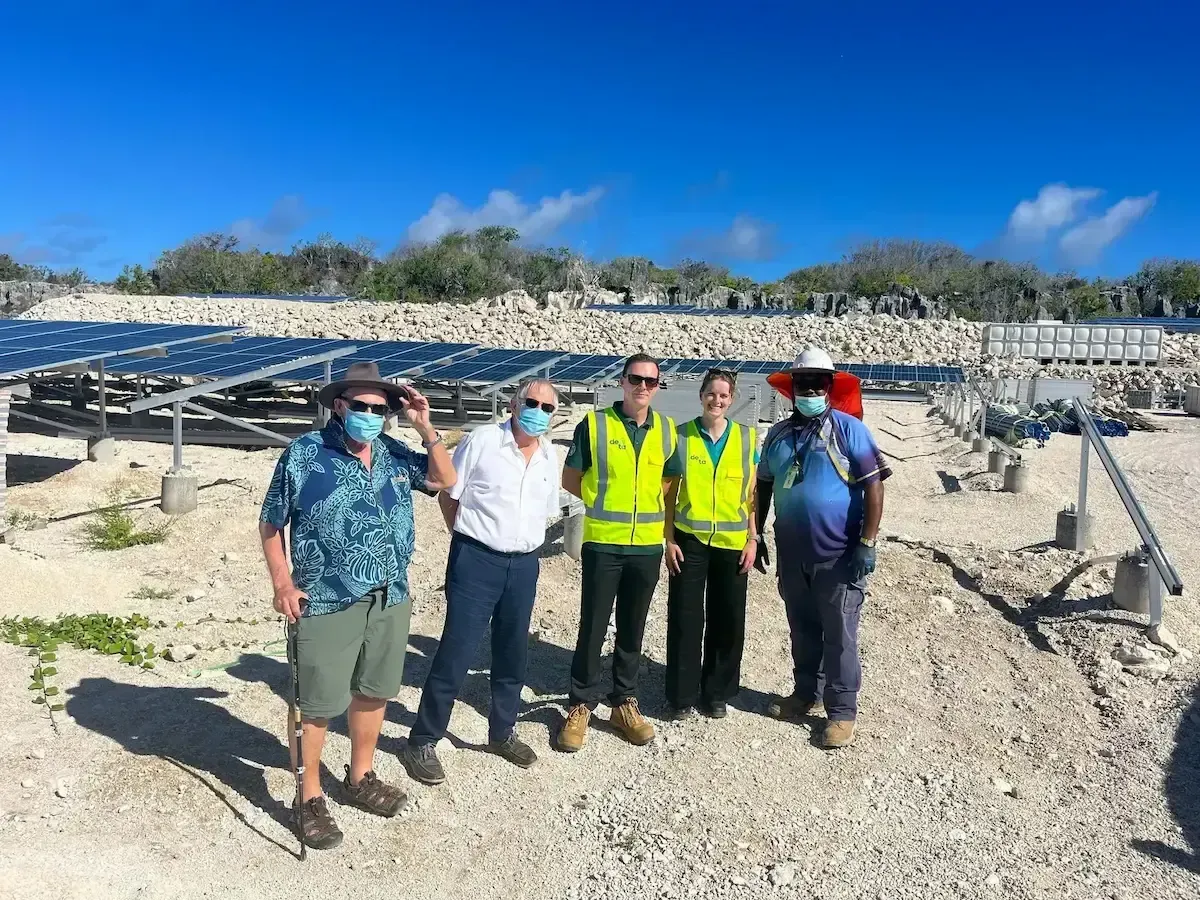
Miniva Harris, NEEDS Project Lead Department of Climate Change and National Resilience:

I am truly grateful for the invaluable technical expertise and management support provided by DETA that has played a pivotal role in enhancing EE knowledge and practices across all sectors of our small island nation. As the NEEDS Project Lead, working in collaboration with DETA and NZMFAT has given me the confidence to sustain and further develop EE initiatives beyond the project life.
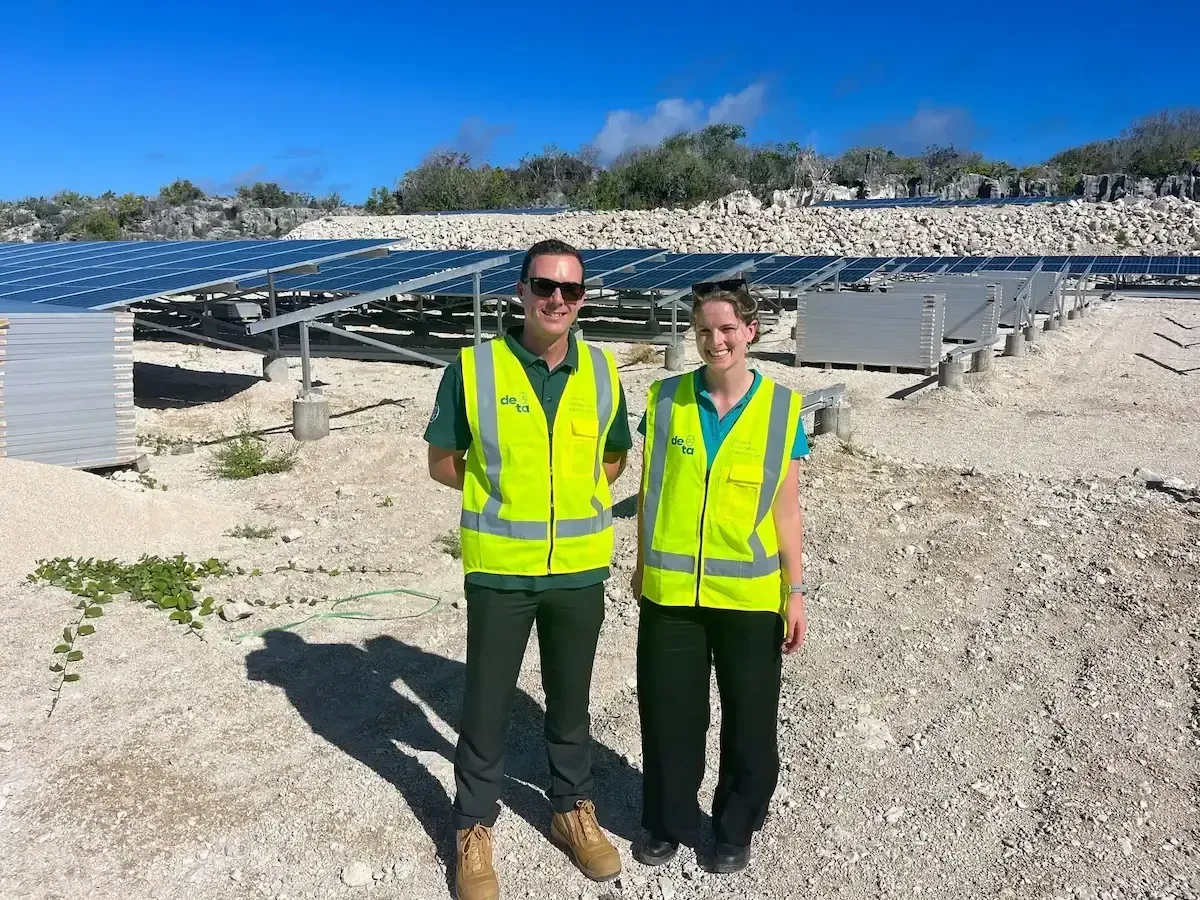
Working in Nauru provided some cultural and language barriers for the DETA project delivery team, but these were quickly overcome by the relationships that were built with the NEEDS Team on site. The projects are exciting and challenging, taking the team out of their comfort zone. The DETA team had to be adaptable in how they approached the implementation of these projects and sometimes had to find innovative solutions to fit in the Nauruan context. All the projects the DETA team are working on will enable the NEEDS Team to continue to upskill and in turn educate the Nauruan community to be self-managed in energy efficiency.
Project lead Eugene Robson comments on his experience:

I have really enjoyed working with the NEEDS Team, Government of Nauru and NZ MFAT to help implement energy efficiency projects in Nauru. It has been rewarding to engage closely with the local NEEDS Team on the island and support the development of energy efficiency projects that are tailored for the Nauruan context.
After a lot of up-front planning work, it’s great to see the wide-ranging projects being implemented and achieving real energy savings for the people of Nauru, with local delivery from the fantastic NEEDS Team
Ultimately, projects like this where the energy efficiency message and the awareness around climate change are promoted create resilient communities which are critical in such unprecedented times. By DETA contributing to such a meaningful project, it’s another action towards attaining our strategic goal of removing 2 million tCO2e emissions every year by 2030.

